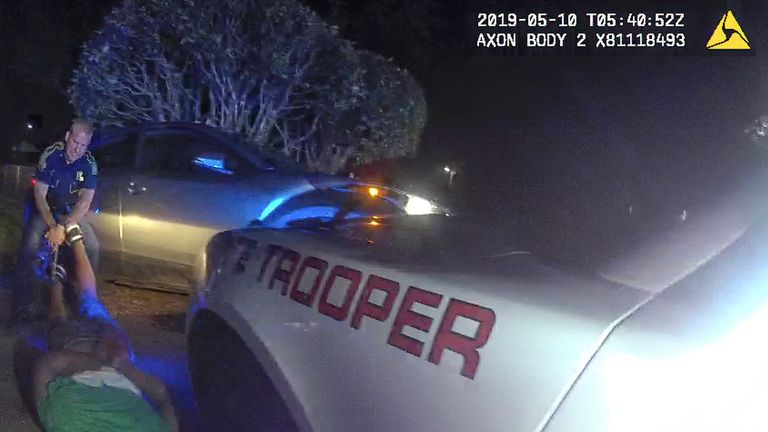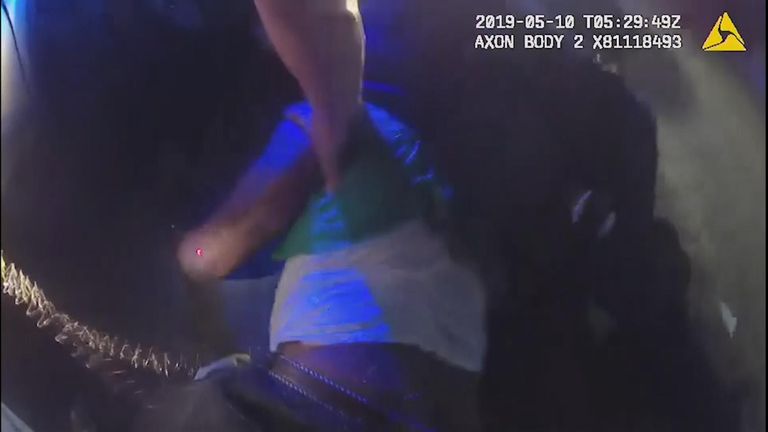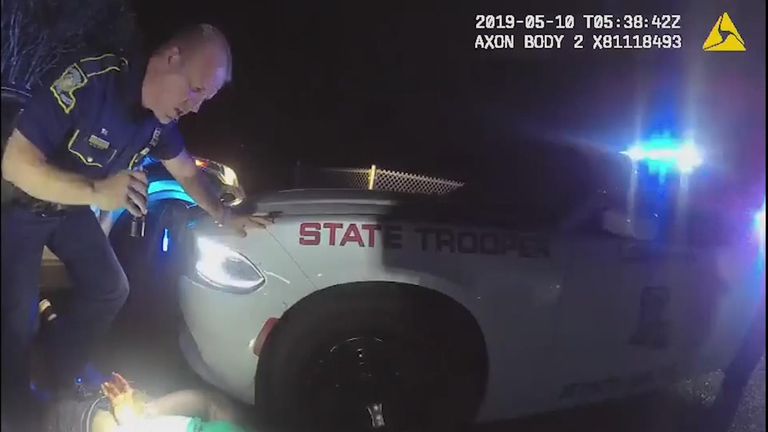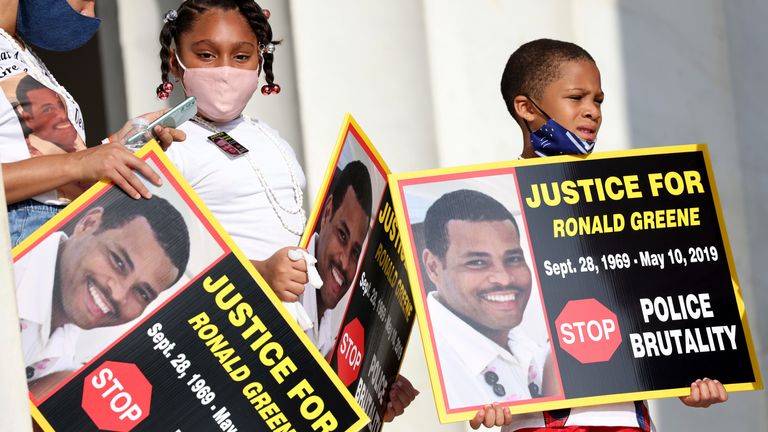Bodycam footage of a death in custody in the US show police officers repeatedly using a stun gun on an unarmed black man as he shouts “I’m scared! I’m scared!”.
Louisiana state troopers are also seen punching and dragging Ronald Greene as he apologises for leading them on a high-speed chase.
The 49-year-old’s arrest outside Monroe, Louisiana, in 2019 is the subject of a federal civil rights investigation.
Bodycam footage has been obtained by the Associated Press after authorities refused to release it for two years.
The case has been shrouded in secrecy and accusations of a cover-up as usually bodycam footage is released almost immediately after deaths in detention.
Louisiana officials have refused repeated calls to release the footage and details about what caused Mr Greene’s death.
The unarmed black man had failed to pull over for an unspecified traffic violation shortly after midnight on 10 May 2019, about 30 miles (48km) south of the Arkansas state line in Louisiana.
In the 46-minute video of his arrest, Mr Greene can be heard telling white troopers “I’m your brother!” and “I’m scared!” as he is repeatedly jolted with a stun gun before getting out of his car in a dark rural road.
One trooper is seen wrestling Mr Greene to the ground, putting him in a chokehold and punching him in the face while another can be heard calling him a “stupid motherf*****”.
Mr Greene wails “I’m sorry!” as another trooper delivers a stun gun shock to his backside and warns: “Look, you’re going to get it again if you don’t put your f****** hands behind your back!”
Another trooper can be seen briefly dragging the man facedown after his legs had been shackled and his hands cuffed behind him.
Instead of rendering aid, the troopers leave the heavyset man unattended, facedown and moaning for more than nine minutes, as they use sanitizer wipes to wash blood off their hands and faces.
“I hope this guy ain’t got f****** AIDS,” one of the troopers can be heard saying.
After a several-minute stretch in which Mr Greene is not seen on camera, he appears again, limp, unresponsive and bleeding from his head and face.
He is then loaded on to an ambulance gurney, his arm cuffed to the bedrail.
In many parts of the video, Mr Greene is not on screen, and the trooper appears to cut the microphone off about halfway through, making it difficult to piece together exactly what was happening at all times.
At least six troopers were on the scene of the arrest but not all had their body cameras on.
Louisiana State Police declined to comment on the contents of the video. In a statement, the agency said the “premature public release of investigative files and video evidence in this case is not authorised and… undermines the investigative process and compromises the fair and impartial outcome.”
The cause of Mr Greene’s death remains unclear.
Union Parish Coroner Renee Smith said last year that his death was ruled accidental and attributed to cardiac arrest.
Mr Greene’s mother Mona Hardin said on Wednesday: “They murdered him. It was set out, it was planned.
“He didn’t have a chance. Ronnie didn’t have a chance. He wasn’t going to live to tell about it.”
The family has filed a federal wrongful-death lawsuit alleging troopers “brutalised” Mr Greene and “left him beaten, bloodied and in cardiac arrest” before covering up the cause of death.
The family has also released graphic photographs of Mr Greene’s body on a gurney, showing deep bruises and cuts on his face and head.
State troopers initially told Mr Greene’s family he died on impact after crashing into a tree during the chase.
Later, state police released a one-page statement acknowledging only that Mr Greene struggled with troopers and died on his way to the hospital.
State police initially argued the troopers’ use of force was justified, with ranking officials describing it as “awful but lawful”.
But the force did not open an administrative investigation until 474 days after Mr Greene’s death.
Lee Merritt, an attorney for Mr Greene’s family, said the footage “has some of the same hallmarks of the George Floyd video, the length of it, the sheer brutality of it”.
“He apologised in an attempt to surrender,” Mr Merritt said.








